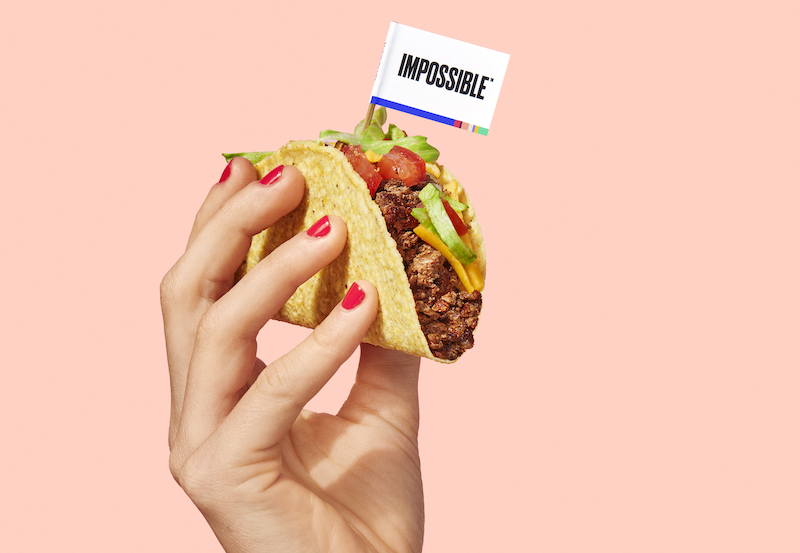ImpactAlpha, March 17 – When told the coronavirus was brewed in the mix of animals at a Wuhan meat market, future generations may ask, ‘What’s a meat market?’ The carbon footprint of raising animals for meat was bad enough; meat risk now includes the spread of zoonotic diseases like COVID-19.
“It’s time to admit that we, as a civilization, have outgrown the dated notion of using animals to produce meat,” Good Food Institute’s Liz Specht declares in Wired. “The current system is broken. It is inefficient, insecure, unsustainable, and extremely unsafe,” she says. “Both plant-based and cultivated meat products remove the food insecurity and zoonotic disease concerns inherent in animal-based food” (watch Specht’s video interview with Reinvent’s Peter Leyden).
Alternatives’ rise
Meat’s competitors have a long runway to bring costs down and tastiness up. Impossible Foods raised $500 million this week even as the stock market rout has hammered rival Beyond Meat, which went public in June. The funding, led Mirae Asset Global Investments and including existing investors Khosla Ventures, Horizons Ventures, and Temasek, brings the total raised by the Redwood City-based food-tech startup to $1.3 billion. Memphis Meats raised $161 million in January to ramp production of lab-cultured meat.
Meat’s risks
If companies were ill-prepared for Corona, just wait for climate change. The world’s five biggest meat companies, including Tyson Foods and JBS, which supply McDonalds, Walmart and Marks & Spencer, face billions in losses and “ruin” if they fail to improve market share in alternative proteins and reduce exposure to beef, according to FAIRR, a global network of investors (managing $20 trillion in assets) addressing risks in protein supply chains.
FAIRR’s new climate risk tool suggests Brazil’s JBS, for example, could see profits fall by nearly half from climate risks such as increased feed costs due to poor crop yields, and livestock mortality due to heat stress. Conversely, Canada’s Maple Leaf, which has invested heavily in plant-based proteins, could grow profits 77% by 2050. Coronavirus is a serious red flag for food-company investors, FAIRR’s Maria Lettin told ImpactAlpha. “Investors will certainly be looking even more closely at animal industries to ensure they are managing critical safety issues in a rigorous and robust way.”
Investor rush to alternative meats and healthy eating accelerates the disruption of food systems











